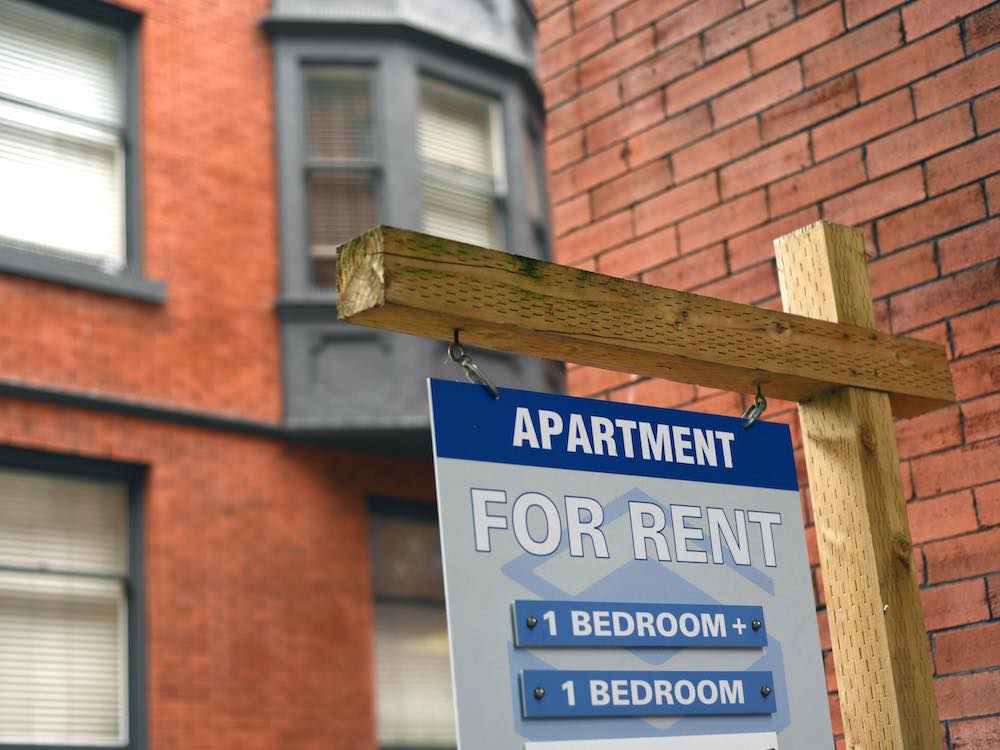Tenants in B.C. will face 3.5-per-cent rent increases in 2024, the government announced Monday.
That’s well below the inflation rate for the last year, but not as low as the Bank of Canada’s inflation target.
Housing Minister Ravi Kahlon said the increase strikes the right balance for renters and owners.
“We know that global inflation is hitting everyone,” Kahlon said. “Renters are facing the pressure of all the costs that have gone up, and as well we know that some landlords are having real pressures with interest rates going up etc.”
Starting in 2018 the NDP government capped allowable increases at or below the rate of inflation as measured by the change in the consumer price index, replacing the previous BC Liberal government’s policy of setting the increase at the rate of inflation plus two per cent.
Over the last 12 months, inflation averaged 5.6 per cent.
“We don’t think anyone can handle 5.6-per-cent increases, so we used the last four-month average which is 3.5 per cent,” said Kahlon. “We believe it is a balance between ensuring the renters don’t get the full 5.6-per-cent hit that would come with where the regulation is and landlords getting a little more support to be able to cover the additional costs that they’re incurring.”
The decision is similar to recent ones the government made to keep rent increases below the rate of inflation. There was a two-per-cent increase allowed last year, 1.5 per cent the year before that, and no increase at all in 2021 as the world coped with the COVID-19 pandemic.
“The last few years have been very abnormal as far as the pandemic, the spike of global inflation that we’re facing, so we responded to the circumstances,” Kahlon said. “We need to get back to more steady policy so that everyone knows what’s coming next year with more certainty.”
The Bank of Canada has a target of keeping the inflation rate between one and three per cent and has been raising interest rates in an effort to cool the economy and return inflation to the target range.
Other provinces set caps on rent increases in various ways. Manitoba uses a similar formula to B.C.’s, but stipulates that the maximum permitted rent increase must be within the Bank of Canada’s target range so that rising rents don’t further contribute to increases in inflation.
“It makes sense, but it’s not the same level of certainty that we could have in British Columbia where it’s directly tied to inflation,” Kahlon said when asked about Manitoba’s policy, noting some other provinces limit increases when inflation exceeds four per cent.
“I have looked at other jurisdictions,” he said. “We have a model and we’re not at this point looking to change it. We do want to get back to more certainty, but we’re not at this point looking to change it considering we just changed it to inflation a few years ago.”
The Manitoba model is one worth considering, said Alex Hemingway, a senior economist with the B.C. office of the Canadian Centre for Policy Alternatives think tank. “That’s a really elegant way of doing it and I like it a lot.”
It makes little sense for the provincial government to talk about “balance” between renters and landowners since landowners have benefited both from rents that have risen dramatically and from rapidly rising land values, Hemingway said. “Landlords are doing just fine. Better than fine in this housing market. We need to focus on protecting renters.”
The government is right to have an eye on setting policies that allow for new rental units to be created, he said, but through well-designed policy they could do that in a way that does more to protect renters of existing units.
About one-third of households in B.C. are renters. The caps on rent increases only apply when existing tenants stay in a rental, allowing landowners to set rents for new tenants or new units at whatever the market will bear.
A result is that average rents have risen much faster than the caps the government has set. According to figures the website Rentals.ca released in August, the average rent for a one-bedroom unit had gone up in the last year by 9.7 per cent in Surrey, 16.2 per cent in Vancouver and 19.6 per cent in Burnaby.
Vancouver is by far the most expensive rental market in Canada, with an average rent of $3,013 for a one bedroom and $3,918 for a two-bedroom unit.
Kahlon said the government has decided to follow the advice from experts who have told it that preventing landowners from raising rents when new tenants move in would discourage new investments in purpose-built rentals.
For renters who are staying in the same units, the government plans to return to following its policy for rent increases in future years, he said. “Next year we’ll go back to inflation barring any unforeseen circumstances, but we need to get back to a level of stability.” ![]()
Read more: BC Politics, Housing

















Tyee Commenting Guidelines
Comments that violate guidelines risk being deleted, and violations may result in a temporary or permanent user ban. Maintain the spirit of good conversation to stay in the discussion and be patient with moderators. Comments are reviewed regularly but not in real time.
Do:
Do not: